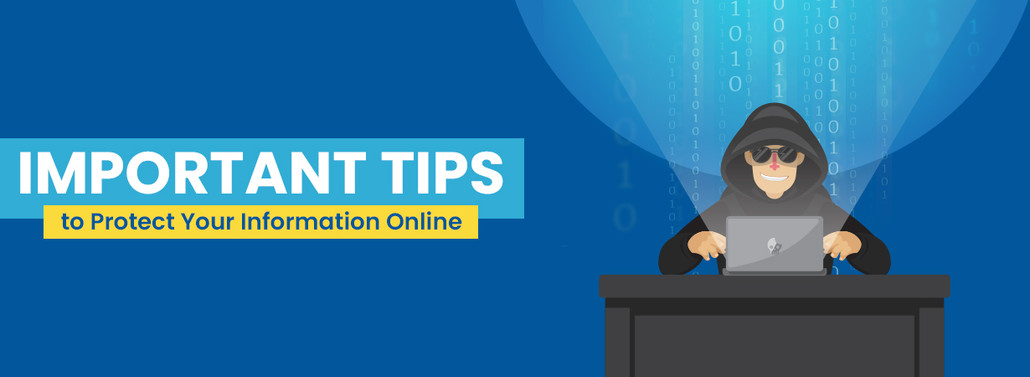
Important Tips to Protect Your Information Online
February 9, 2022
Important Tips to Protect Your Information Online
Almost everything is done online now. Whether it's sharing files, collaborating with your business associates, shopping, payments, or just using social media, you can easily do it over the internet. However, there is a need to protect your information online for business and personal purposes. Some hackers are constantly trying to find breaches in the security of websites, accounts, software, etc. It is to keep your data safe from hackers and cyber attacks, and you need to ensure certain things. This blog presents some essential tips to help you protect your data online. So, you need not worry as you can minimize the risk by following the below-mentioned tips:
1. Install Antivirus in Your Devices
Often we download some data from the internet or do not secure our data properly, which leads to malware attacks on our device. The best way to protect your data from malware is an antivirus. Antivirus software can layer up your security and warn you against potential breaches. It also scans your device and removes the malware, if there is any.
You can opt for antivirus software like Microsoft Defender For O365 Plan 1 that helps keep your data safe. After installing antivirus, you can sit back and relax while keeping your device and data guarded.
2. Use Public WiFi With More Caution
Everyone feels the need to be connected to the internet everywhere they go. People often use the free WiFis available in public places. However, they usually are not much secured and invite potential threats. To prevent anyone from accessing your data, try to use it only for surfing and not to use any public WiFi for online shopping, accessing bank accounts, etc.
3. Using VPN
While using a public network, a virtual private network (VPN) is recommended. It encrypts and reroutes your internet traffic via different servers of the VPN provider. It preserves your IP address and location confidential, protecting you from advertisers and trackers. You can also access content that is not available in your country.
4. Keep an Up-To-Date OS
To ensure that your operating system has minimum flaws in security, keep your system up to date. Don't miss any chance to level up your protection by updating your system or opting for a more secured OS. Updates and new software fill loopholes that were not guaranteed before and protect your data from hackers and malware. You can opt for Microsoft's latest OS, Windows 11, which comes with advanced security features.
5. Keep Your Data Backed Up
Ways to Protect Your Personal Information Online
- Avoid Oversharing on Social Media
- Use Your Smartphone For Payments
- Secure Your Wireless Networks
- Use Two-Factor Authentication
Always keep your data backed up to keep it protected. Even if you try hard to keep your data safe, some accidents can result in critical data loss. To prevent this, use servers like Microsoft SQL Server, Windows Server, etc., that come with advanced technology to backup and restore all your essential information in case of any loss.
6. Ensure Your Passwords Are Strong
To reduce the risk of breaches, you need to ensure that your passwords are strong. Weak or stolen passwords are much more likely to get hacked. Moreover, many people are exposed to more threats during work from home. Here are some ways to create strong passwords:
- Don't use old passwords again
- Create them longer than ten characters
- A combination of uppercase and lowercase letters, characters, and numbers should be used
- Use password generating tools
Besides, a lot of people have a problem recalling their passwords. If that is the case, you can store all your passwords in a secure password vault. With this, you can access all your passwords by only remembering one. You can use some good tools are LastPass, 1Password, and Dashlane.
7. Keep Your Data Encrypted
Keep your data safe while exchanging information with your customers during a transaction or other action. To ensure your data is safe, use Secure Socket Layers (SSL) that protects sensitive information during transmission. Since 2018, it has been mandatory to have SSL on every website. Websites without SSL are marked as potentially harmful by most web browsers. While purchasing a hosting plan, you can check if the provider has included a free SSL certificate. If not, you can buy it from independent providers.
8. Make Sure The Site is Secured
People often enter their personal information on unverified websites, which leads to trouble in the future. Make sure to check if the website is secured and has an SSL certificate before you enter any sensitive information.
To check that, look if there is a green bar, green padlock icon, or HTTPS in the URL at the beginning. You can also check it through a website's privacy policy, contact information, or a verified seal by a web security firm.
